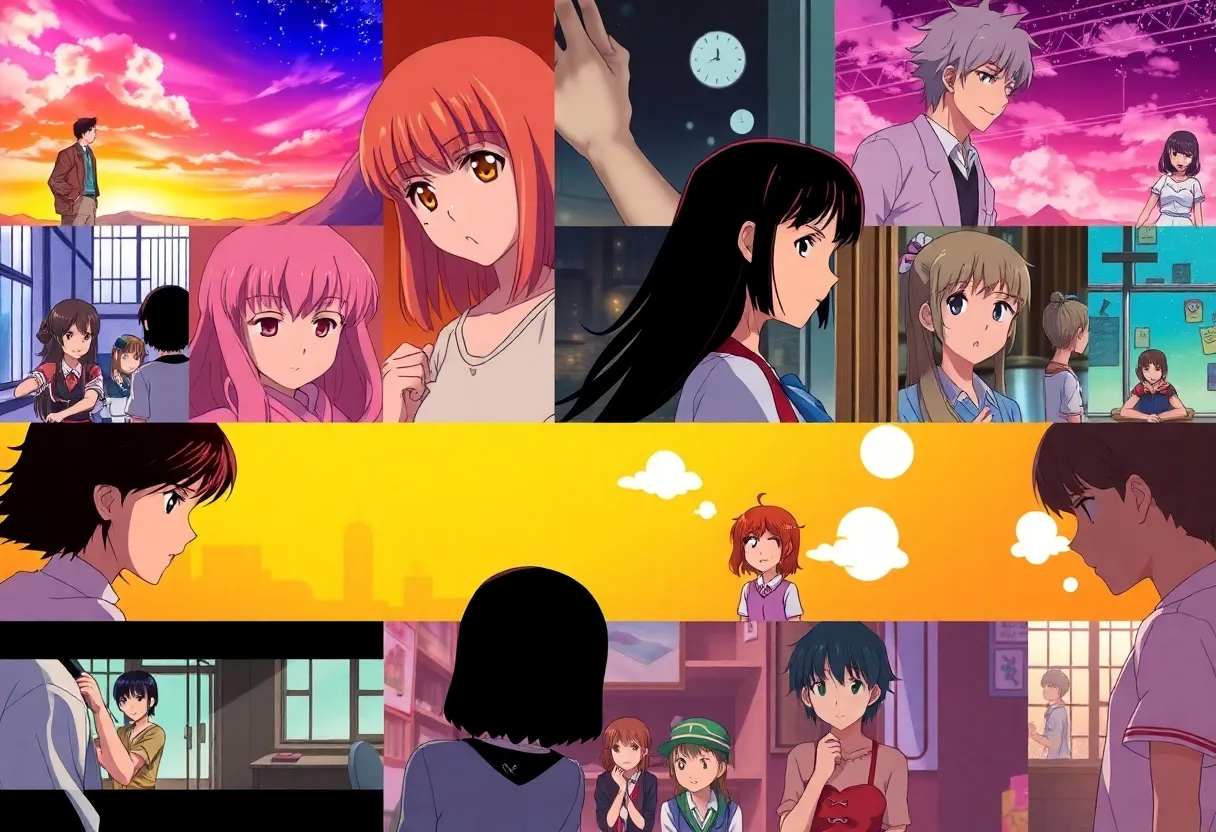News Summary
As audience perspectives evolve, older anime titles like ‘Golden Boy’ and ‘Kiss x Sis’ are facing scrutiny for outdated themes and representations. Many series are criticized for their handling of consent, gender dynamics, and objectification, which are increasingly viewed as problematic. This cultural shift is prompting discussions about the need for accountability in storytelling, pushing creators to reflect on contemporary values. The reassessment of these controversial narratives marks a significant change in viewer expectations and highlights the demand for narratives that prioritize respect and understanding.
Tokyo – As conversations surrounding representation, consent, and social responsibility in storytelling evolve, older anime titles are increasingly coming under scrutiny from contemporary audiences. Once-celebrated series are now being reevaluated through a modern lens, reflecting a growing demand for critical engagement with troubling themes and narratives embedded within these popular shows.
Viewers today bring diverse perspectives to their consumption of anime, leading to heightened awareness of harmful tropes and stereotypes that were often overlooked in the past. Series like Golden Boy and Kiss x Sis, for example, utilized outdated gender dynamics and inappropriate relationships as sources of humor, which some audiences now find unacceptable.
During their initial broadcasts, many controversial anime faced minimal backlash, often being labeled as “edgy” rather than problematic. However, in today’s environment, viewers are more vocal about the disturbing elements present in these narratives. The shift in audience expectations has generated significant backlash against older series that feature abusive behaviors, objectification, and consent violations.
One such series, Hetalia: Axis Powers, simplifies complex historical traumas by reducing nations with painful legacies into comedic caricatures, raising concerns about insensitivity. Similarly, Golden Boy centers around Kintaro Oe’s troubling obsession with women, depicting actions like spying and groping without presenting significant consequences, which adds to the series’ controversial nature.
Kiss x Sis presents an incest-adjacent storyline treated humorously, engendering ethical debates over its portrayal of power dynamics. Kodomo no Jikan further highlights a disturbing romantic fixation between a teacher and a young student, framing unsettling themes as quirky or emotional, which clashes with current societal expectations surrounding consent.
In Green Green, constant objectification and inappropriate behavior within a school setting exemplify inadequate treatment of consent and sexual dynamics. School Days portrays emotional manipulation among characters, culminating in a violent finale that critiques traditional relationship norms but does so through an unsettling lens. Bludgeoning Angel Dokuro-chan employs shock humor involving violence toward minors, making its implications troubling in today’s media landscape.
Another controversial title, Midori: Shojo Tsubaki, features extreme portrayals of abuse and a complete lack of empathy, casting it as unacceptable by contemporary standards. Meanwhile, Wolf Girl and Black Prince romanticizes a controlling relationship, which modern audiences recognize as toxic rather than desirable. Additionally, Marmalade Boy explores ethically questionable romantic plots involving potentially half-sibling characters, causing further scrutiny of the narratives that were once taken lightly.
The rising discourse surrounding notions of consent, emotional manipulation, and the portrayal of relationships reflects a notable shift in viewer expectations for character interactions in anime. The reassessment of these older series showcases how many are now viewed as outdated, problematic, or difficult to engage with due to their handling of sensitive themes.
Overall, the transformation in viewer attitudes toward anime reveals a broader cultural movement that demands greater accountability in storytelling, pushing for narratives that prioritize respect and understanding over outdated tropes and controversial dynamics. As these conversations continue to gain momentum, they could lead to significant changes in the anime industry, with creators urged to reflect on contemporary values and the impact of their narratives.
Deeper Dive: News & Info About This Topic
HERE Resources
Additional Resources
- Anime News Network: The Colors Within Review
- Wikipedia: Anime
- FandomWire: Netflix’s Devil May Cry
- Google Search: Anime Representation
- CBR: Your Lie in April Representation
- Google Scholar: Anime and Representation
- Dexerto: Castlevania Nocturne Writers Criticism
- Encyclopedia Britannica: Anime Critique
- Anime Herald: Queer Representation in Ouran High School Host Club
- Google News: Anime Representation
Author: STAFF HERE BALTIMORE WRITER
The BALTIMORE STAFF WRITER represents the experienced team at HEREBaltimore.com, your go-to source for actionable local news and information in Baltimore, Baltimore County, and beyond. Specializing in "news you can use," we cover essential topics like product reviews for personal and business needs, local business directories, politics, real estate trends, neighborhood insights, and state news affecting the area—with deep expertise drawn from years of dedicated reporting and strong community input, including local press releases and business updates. We deliver top reporting on high-value events such as the Baltimore Book Festival, Preakness Stakes, and Artscape. Our coverage extends to key organizations like the Baltimore Chamber of Commerce and Visit Baltimore, plus leading businesses in shipping and healthcare that power the local economy such as the Port of Baltimore and Johns Hopkins Medicine. As part of the broader HERE network, we provide comprehensive, credible insights into Maryland's dynamic landscape.





